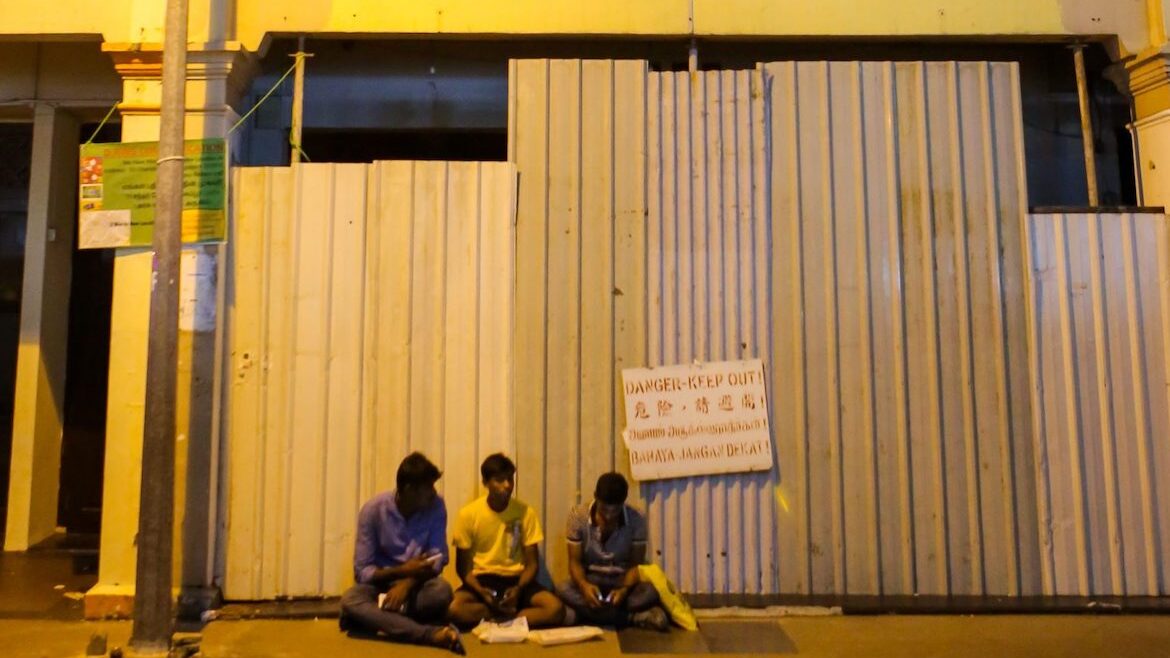(Cr)Immigration and Merit-Based Migration in Singapore: The Permanent ‘State of Exception’
December 18, 2023
As the world observes International Migrants Day on 18 December, Singapore is once again reminded of its dependence on migrant labour, as well as the issues surrounding migrant workers in the city-state. Dr George B. Radics (NUS Sociology and Anthropology) reckons with the state of precarity that migrant labourers live in in Singapore, and delves deep into this subject in his chapter titled ‘(Cr)Immigration and Merit-Based Migration in Singapore: The Permanent ‘State of Exception’ in the book Criminal Legalities and Minorities in the Global South: Rights and Resistance in a Decolonial World (Palgrave Macmillan, 2023).
Dr Radics examines Singapore’s merit-based immigration system, which he argues intensifies the marginalization of temporary migrant workers. He sheds light on the hierarchy of foreign workers, whose rights and permissions are tied to their employment status. Dr Radics then posits that migrants at the bottom rungs of this hierarchy are often denied fundamental rights that are otherwise granted to other migrants and citizens.
The chapter investigates the plight of migrant workers, particularly labourers from India and Bangladesh who are low-income and on temporary work permits. Dr Radics explains that these workers are positioned at the bottom of the skills hierarchy and hence find themselves in a perpetually precarious condition in Singapore’s criminal justice system. Because of this, their status fluctuates according to their behaviours and whether they are perceived to be security threats.
Dr Radics provides compelling examples of how legal protections for migrants are often suspended during times of crisis. In particular, he highlights the Little India riot of 2013, the swift detention and subsequent deportation of Bangladeshi migrant workers under the Internal Security Act (ISA), and the stringent regulations imposed on construction workers during the COVID-19 pandemic as testament to his claims. These instances underscore an unsettling reality – that in emergencies, migrant workers are often the first to be stripped of their rights, their residence in Singapore being in constant jeopardy.
To explain how these power asymmetries and systems of hierarchy came to be, Dr Radics explores the history of South-South migration and its entanglement with Singapore’s immigration laws. He delves into the history of colonial migration to Singapore, which he points out led to the evolution of Singapore’s merit-based migration system. This system, he explains, was designed to regulate the influx of foreign workers based on their country of origin.
Dr Radics also brings attention to the Singaporean government’s prioritisation of order over justice. He posits that the government’s paternalistic approach entangles crime and criminal justice with immigration policies, and argues that while Singapore’s laws may seem excessively harsh, they are ultimately a product of deep-rooted colonial racialized migration practices combined with the demands of a competitive globalized economy.
The chapter concludes with a cautionary note on the global implications of merit-based migration systems. Such systems, the Dr Radics asserts, dehumanize low-skilled migrant workers and exacerbate the state of precarity they face.
In the spirit of International Migrants Day, Dr Radics’ book chapter serves as a poignant reminder of the challenges faced by migrant workers and urges readers to re-evaluate their attitudes towards them.
Read the chapter here.

